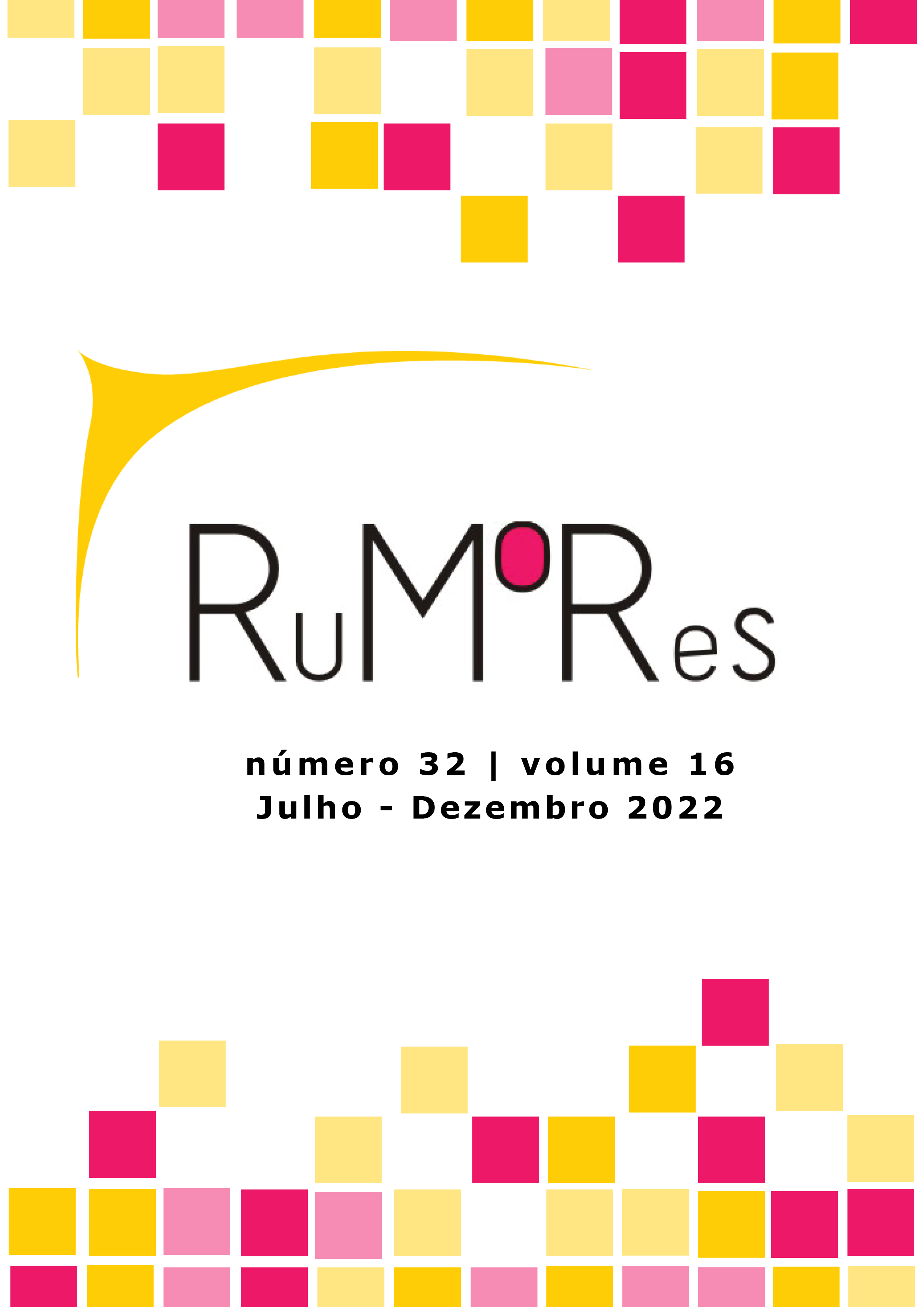The role of black women journalists in the struggle for recognition and representativeness
DOI:
https://doi.org/10.11606/issn.1982-677X.rum.2022.202037Keywords:
Journalism, Media and struggle for recognition, Alterity and Representativeness, Racism and Identity Issues, Social media.Abstract
The article discusses the place of black women in journalism, based on the digital presence of black journalists Maria Júlia Coutinho, Aline Midlej and Joyce Ribeiro. We seek to understand how the activism of these professionals on Instagram contributed to making them a symbol of representation and struggle, as well as delineating the dynamics of conflicts that the presence of black women causes in different social spheres and especially in journalism. The theoretical framework includes studies in the fields of philosophy, with emphasis on the theory of the struggle for recognition and otherness, and journalism, intersecting them with the theme of racism, representation and identity issues. The research is guided by the question: How can the performance and activism of the three journalists culminate in the struggle for recognition of black girls? For this, we used two methodological procedures, the bibliographic review in the fields of study and the content analysis, on a quantitative basis, of posts and comments on Instagram by journalists, between April 17 and 30, 2021.
Downloads
References
BARDIN, L. Análise de conteúdo. Lisboa: Edições 70, 2020.
BERTH, J. Empoderamento. São Paulo: Pólen, 2019.
CERQUEIRA, D.; FERREIRA, H.; BUENO, S. (org.). Atlas da violência 2021. São Paulo: Fórum Brasileiro de Segurança Pública, 2021.
FRANCO, M. L. P. B. O que é análise de conteúdo. Brasília, DF: Cátedra UNB, 1998.
GALDINO, M. A escassez de jornalistas negras na bancada do telejornalismo brasileiro. In: SANTOS, M.; TEMER, A. C. R. P. Mulheres no jornalismo: práticas profissionais e emancipação social. São Paulo: Casper Líbero, 2018. p. 33-54.
GRUPO DE ESTUDOS MULTIDISCIPLINARES DA AÇÃO AFIRMATIVA. Jornalismo brasileiro: raça e gênero de quem escreve nos principais jornais do país. Rio de Janeiro, 2021. Disponível em: https://bit.ly/3OvWBXA. Acesso em: 10 ago. 2022.
HALL, S. A centralidade da cultura: notas sobre as revoluções culturais do nosso tempo. Educação & Realidade, Porto Alegre, v. 22, n. 2, p. 15-46, jul.-dez. 1997.
HALL, S. A identidade cultural na pós-modernidade. 11. ed. Rio de Janeiro: DP&A, 2006.
HALL, S. El trabajo de la representación. Lima: Instituto de Estudios Peruanos, 2002.
HALL, S. Quem precisa de identidade? In: SILVA, T. T. (org.). Identidade e diferença: a perspectiva dos estudos culturais. Petrópolis: Vozes, 2014. p. 103-133.
HALL,S. Cultura e representação. Rio de Janeiro: Ed. PUC-RIO: Apicuri, 2016.
HONNETH, A. Luta por reconhecimento. São Paulo: Editora 34, 2003.
JODELET, D. A alteridade como produto e processo psicossocial. In: ARRUDA, A. (org.). Representando a alteridade. Petrópolis: Vozes, 1998. p. 47-67.
JOVCHELOVITCH, S. Re(des)cobrindo o outro. In: ARRUDA, A. (org.). Representando a alteridade. Petrópolis: Vozes, 1998. p. 69-82.
LÉVINAS, E. Totalidade e infinito. Lisboa: Edições 70, 2020.
MAIA, R. Mídia e lutas por reconhecimento. São Paulo: Paulus, 2018.
MARCOS, M. L. Reconhecimento e alteridade. In: MARCOS, M. L.; CANTINHO, M. J.; BARCELOS, P. (org.). Emmanuel Lévinas: entre reconhecimento e hospitalidade. Lisboa: Edições 70, 2011.
SANTOS, M. A mulher no jornalismo investigativo: pistas deixadas no Prêmio Esso. In: SANTOS, M.; TEMER, A. C. R. P. Mulheres no jornalismo: práticas profissionais e emancipação social. São Paulo: Cásper Líbero, 2018, p. 69-92.
TEMER, A. C. R. P.; MORAIS, A. M. Telejornalistas mulheres e as desigualdades de gênero. In: SANTOS, M.; TEMER, A. C. R. P. Mulheres no jornalismo: práticas profissionais e emancipação social. São Paulo: Cásper Líbero, 2018.
Downloads
Published
Issue
Section
License
Copyright (c) 2022 Louis Edoa, Cilene Victor

This work is licensed under a Creative Commons Attribution-NonCommercial-ShareAlike 4.0 International License.
Declaro a total e irrestrita cessão de direitos autorais sobre o texto enviado para publicação na Rumores – Revista Online de Comunicação, Linguagem e Mídias. Entendo que o conteúdo do artigo é de minha inteira responsabilidade, inclusive cabendo a mim a apresentação de permissão para uso de imagens, ilustrações, tabelas, gráficos de terceiros que, porventura, venham a integrá-lo.









